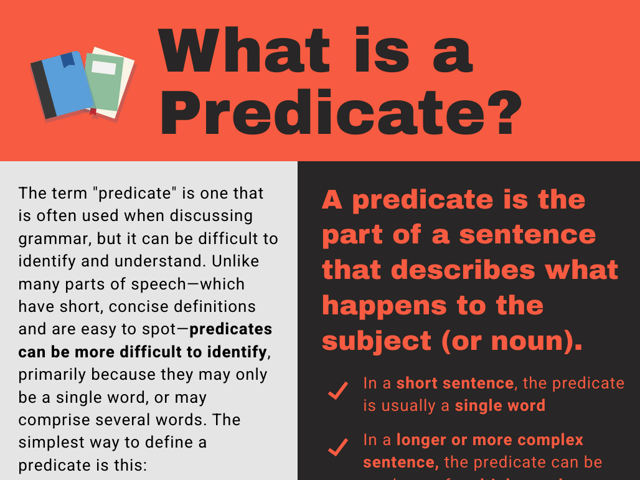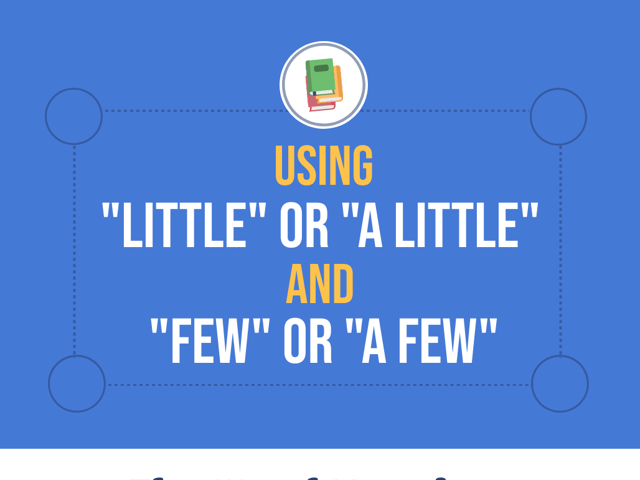
What is a Predicate?
The term predicate is one that is often used when discussing grammar, but it can be difficult to identify and understand. Unlike many parts of speech—which have short, concise definitions and are easy to spot—predicates can be more difficult to identify, primarily because they may only be a single word, or may comprise several words. The simplest way to define a predicate is this:
A predicate is the part of a sentence that describes what happens to the subject (or noun).
In a short sentence, the predicate is usually a single word. In a longer or more complex sentence, however, the predicate can be made up of multiple words.
Types of Predicates
To add to the mystery of predicates, there are actually two types: a simple predicate and a complete predicate. A simple predicate is one that consists of only one word. In the sentence “He ran,” for instance, ran is the predicate. A complete predicate is the entire series of words in any given sentence that does not encompass the subject.
Consider a complex sentence, such as this one:
Eli’s new socks stank to high heaven.
Here, the predicate is complete and is made up of “…stank to high heaven.”
How Can I Remember All of This?
A simple way to remember how to find a predicate is this:
The predicate is made up of all of the words in a sentence that are not the subject and are not modifying the subject.
-
They can contain adverbs, verbs, and other parts of speech, provided that those parts of speech do not modify or alter the sentence’s subject.
-
As sentences grow more complex, predicates can be more difficult to discern. Although small and simple sentences—those containing only one verb or a simple subject, for instance—have clearly defined predicates, larger and more complex sentences and clauses can have predicates that include not only verbs and their modifiers, but also nouns and adjectives.
Look at this sentence:
Sybil shaded her eyes with her enormous scarf.
The predicate here is “shaded her eyes with her enormous scarf”—a phrase that includes pronouns, nouns, and an adjective.
Is There Anything Else I Need to Know?
Yes. Predicates can have more than one verb, as is the case in the sentence:
Charlie sat below the tree and huffed.
This is called a compound predicate: “sat below the tree and huffed.” Compound predicates contain multiple verbs, usually accompanied by the word and.
Although getting the hang of what does and does not constitute a predicate can take some time, practice is the best way to become familiar and comfortable with predicates and the many forms they take. To learn more about predicates and other common grammar concepts, check out our English Basics practice tests, study guides, and flashcards.

Keep Reading

English Basics Blog
How to Write a Compare and Contrast Essay
When you were in school, you probably had to write a lot of different t…

English Basics Blog
What are Superlatives?
We spend our lives making comparisons, whether we realize it or not. Wh…

English Basics Blog
When to Use “Little” or “a Little” and “Few” or “a Few”
Few aspects of the English language can grow as convoluted as when to u…